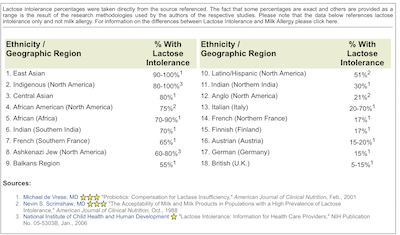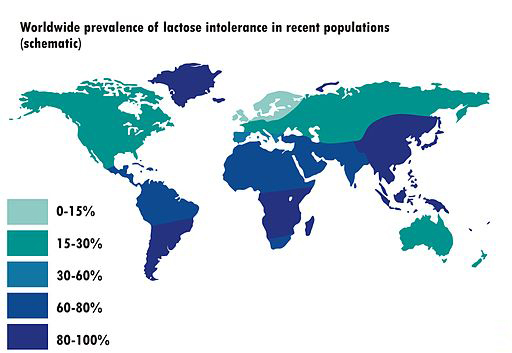Dairy
Avoid dairy
animal milk
cream
cheese
ice cream
Casein
Colin T. Campbell has researched casein extensively. Casein is dairy protein. It is fed to laboratory animals in studies. Colin Campbell grew up on a dairy farm yet today he is one of the lead lecturers on going vegan. He found that casein, or eating casein products contributed to liver cancer, to heart disease, to ASHD, to heart attacks and more. He is in a documentary called PLANeat. Casein includes yogurt, cheese, milk, sour cream. These are to be avoided.Animal milk
Milk is so high in sodium and it has many solutes that dehydration of the body can result. This increases the kidney's workload, filtration through cystic kidneys becomes difficult, dehydration can result hastening kidney failure. A perfectly healthy person when deprived of water can lose their functioning kidneys. Milk is so high in sodium that it can raise blood pressure. Others have experienced after having even a bite of dairy filled ice cream they find themselves awakening them with a deep thirst, and dry mouth, something akin to a cotton mouth. Mother's milk is fine and very alkaline producing. Plant based milks are plentiful and beneficial: almond, rice, hemp, more. Continue to avoid soy milk as it is a strong phytoestrogen and the number one allergic food in the USA.Asiago Cheese
This is a low in fat cheese, still it is to be avoided with PKD Polycystic Kidney Disease and PLD Polycystic Liver Disease. Dry and orange cheeses are to be avoided. If one must eat cheese try Daiya or Follow your heart vegan cheese.
Lactose Intolerance
Many are lactose intolerant. Severe stomach pains accompany taking in dairy. This is particularly noted in those of Asian descent.
BGH Bovine Growth Hormone
Normally animals giving milk do so from an increase in their own body hormones. However additional hormone, BHG Bovine growth hormone, is given to milking cows in the USA causing them to increase their production of milk by 10-100 times. This BGH Bovine growth hormone plus the animal's natural hormone is leached into the milk. Humans drinking or eating products made from this milk can have an increase in reproductive cancers, reproductive abnormalities, PLD liver cyst growth and more. Animal hormones are taken into the human body and act as if this hormones is true estrogen. Estrogen, a hormone, is stored in the fatty muscles, in the fatty tissue, in marbled meats, and in the fat or creams from the animal. These hormones are harmful to humans.
Animal milk contains casein and hormones. When drinking any type of animal milk look for organic, free of pesticides, produced without any bovine growth hormone, or try a cultured milk product such as skim buttermilk. Perhaps 2 ounces of skim milk drunk in the winter months might be considered acceptable in providing Vitamin D for people living in Northern countries with less sunshine. A better way to assure an adequate intake of Vitamin D is to take daily walks in the sunshine and a third way is to supplement with Vitamin D. Check all supplements with your nephrologist and ask for a referral to a bone specialist should your own bones become thin.
Cream
Cream contains casein and hormones. The fatty portions of the animal contain the highest amounts of hormones. Milk, cream, butter, and cheese are loaded with estrogen. Many USA dairy farmers are giving milking cows additional BHG Bovine growth hormone to increase milk production to 10-100 times what would naturally have occurred. Milk, cheese, butter, cream, and meat from these cows not only has hormones in higher amounts stored in the fat, but the cows also graze on endocrine disrupting contaminated grass or GMO feed (endocrine disrupting) is given to live stock.Butter and Cheese
Cheese and butter contains casein and hormones. If one can eliminate cheese, this is beneficial to PKD/PLD. If this is very difficult the next possibility is to choose cheese or dairy which is cultured such as French butter called Plugra, produced from crème fraiche; a cultured cream; then churned into butter. Or seek out milks and butters made from cows that graze upon the first new blades of grass in spring. This butter has a different taste. If one must have cheese then choose a light white cheese with half the fat such as ementhaler (called Swiss cheese in the USA), Try and find salt free cheeses. Dairy alone is high in sodium. Soft white goat and sheep cheeses may also be better choices. Avoid any yellow cheeses and any hard cheeses such as parmesan or reggiano; also avoid mozzarella.Yogurt
Animal milk yogurt contains casein and hormones. It is made from a cultured starter. Almond milk yogurt and coconut milk yogurt both are beneficial provided they do not contain carrageenan. There is third type of non-dairy Greek yogurt called Daiya, however it does contain sugar.Vegan Ice Cream
Dairy ice cream contains casein and hormones. Animal milk ice cream is loaded with additives, chemicals, and hormones. There are many plant based milk ice creams on the market. Almond dream ice cream and some almond, coconut ice creams contain carrageenan. You might try making your own ice cream from these recipes.Carob almond non dairy ice cream recipe
1 pk unflavored gelatin ora tsp of guar gum
1 can coconut milk
3 TBS coconut oil
1/4 cup carob powder
1/4 cup tupelo honey
3 egg yolks or egg replacer
1 vanilla bean scraped or tsp vanilla
1/4 cup chopped toasted almonds
Heat coconut milk and oil in a saucepan, on low; when warm sprinkle gelatin on top, turn off heat. Wait 5 minutes, then turn on heat, stir in tupelo honey, carob, and egg yolks. Heat only to a simmer then turn off heat (don't want to cook egg). Let cool. Put a pan in larger pan of ice water. Set in this for a few minutes. Beat with electric mixer for a minute. Put in fridge to cool at least an hour. Just before freezing in ice cream maker, or in freezer, add vanilla bean and beat with mixer again. Add toasted almonds.br />
Pumpkin non dairy ice cream recipe
1 cup pumpkin purée1 vanilla bean scraped or tsp vanilla
1 cup plant milk (almond,rice)
1 cup coconut milk
5 egg yolks
1/3 cup tupelo honey
1 tbs un sulphured molasses (not blackstrap)
1/2 tsp cinnamon
pinch cloves or freshly grated nutmeg
1 tsp of guar gum
Combine room temperature pumpkin purée and vanilla in a glass container with a lid. Refrigerate until cold.
Side note:
Choose a pumpkin squash; baked at 375º hour and a half, remove the seeds; scoop and purée the flesh in a food processor. Use 1 cup.
Heat 1 cup almond milk and 1/2 cup of coconut milk in a saucepan over medium high heat. Watch it carefully (it doesn't need to boil only to steam. In a separate bowl, whisk egg yolks, honey, molasses and spices in a heat-proof mixing bowl. Once the milk mixture is heated, gradually pour 1/4 cup of it into the egg mixture, whisking the entire time. The goal here is to warm up the egg mixture without making scrambled eggs. Pour the warmed egg mixture into the saucepan with the milk, whisking constantly over very low heat until it thickens (took about 10 minutes). This is critical: you do not want this to boil (or even simmer). You know it is ready when the mixture will coat the back of a wooden spoon. A double boiler can be used. Remove from the heat and stir in the cold pumpkin/vanilla mixture. Pour the custard through a mesh sieve/strainer set over a clean heat proof glass bowl. Use a rubber spatula and press the mixture through the sieve. Stir in the remaining 1/2 cup coconut milk and whisk until blended. Cover and refrigerate until cold (3-4 hours or overnight). Churn in an ice cream maker. Serve with chopped walnuts, pecans or chopped carob sprinkled over the top. Makes 1 qt.
Almond dream ice cream and almond ice cream with carrageenan are harmful for PKD PLD. Carrageenan can cause glucose intolerance plus cancers of the GI tract.
Dairy
↑ prostate cancer↑ bladder tumors
↑ PKD symptoms
↑ PLD symptoms
Significant quantities of aflatoxin, a known carcinogen, has been found in the feed of cows. This is passed on to consumers in milk, dairy, cheese, ice cream. Milk is so high in sodium dairy has many solutes that dehydration of the body can result. Hormones are given to milking cows for them to continue to produce milk. These hormones are passed on to consumers.

Lactose Intolerance
Many of this world are lactose intolerant, perhaps 65%. This is found especially in Asia.

